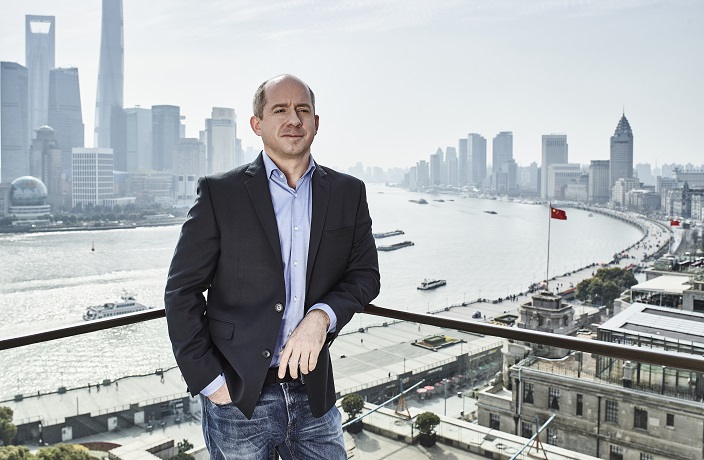This is part of our series of interviews with some of the speakers at the 2017 Shanghai International Literary Festival
As China’s second richest man, Jack Ma is the global face for the country’s innovative tech entrepreneurs. While he recently met with US President Donald Trump to discuss ways to create more than a million jobs in America, Ma’s mighty e-commerce empire Alibaba famously began in a modest Hangzhou apartment 18 years ago.
Ma’s journey from an English language teacher to global power player is chronicled in Duncan Clark’s Alibaba: The House that Jack Ma Built . An early advisor for the company, Clark credits its success to “the consistency of Ma’s vision.”
“In 1999, [Ma] said he would take on the giants of Silicon Valley and indeed he did. He was driven by an unwavering faith in the power of entrepreneurs and the Internet to transform China,” Clark explains. “Back then in the humble surroundings of his apartment, it all sounded quite impossible, but his self-effacing and humorous personality made me want to believe he could do it.”
While Alibaba began with a focus on business-to-business e-commerce and became profitable within two years, the company exploded with the 2003 founding of its business-to-consumer platform, Taobao. Its AliPay function was spun off into its own separate business a year later.
“Ultimately Jack’s biggest success in the early days was using his charisma to raise the capital he needed to start Taobao,” Clark says. “His reputation was secured by 2006 with Taobao’s humiliation of eBay in China.”
Now Ma uses his engaging personality to charm world leaders, such as his famed appearances at the World Economic Forum (WEF) in Davos, where he routinely undercuts his growing power by noting that he had been rejected 10 times by Harvard. Looking through his archive Ma’s speeches over the last two decades, Clark laughingly points out that the Alibaba founder “has been giving the same speech [over and over again]!”
“Not exactly, of course, but he often repeats some stock stories or jokes,” Clark explains. “But if you look at the faces of his audience, you will see that Jack has an incredible ability to make people laugh and keep their attention. Like a stand-up comedian, he knows how to tailor his performance to suit any particular crowd.”
With a purported 80 percent share of China’s e-commerce market, Alibaba is turning its eyes abroad. Its USD25 billion initial public offering (IPO) three years ago on the New York Stock Exchange was the world’s largest. It recently struck a deal with Steven Spielberg’s Amblin Entertainment, showing its bold intentions to infiltrate Hollywood.
“Alibaba has no choice but to diversify,” Clark says. “China’s e-commerce market is changing in line with the country’s consumers, who are demanding [not only better] quality of goods, but also services and cultural content – from financial services to sports and entertainment.”
“Big data is the driving force for Alibaba’s diversification. All the information flowing through its e-commerce, finance (especially AliPay) and logistics businesses give it a unique opportunity to anticipate, and perhaps even shape, consumer demand.”
An underexplored aspect of Alibaba’s expansion is its focus on emerging markets. While competitors like eBay and Amazon may rule the West, Alibaba Express has become an increasingly popular site for consumers “keen to buy ‘factory gate’ priced products, made in China that are not available through other channels.”
As a result, Alibaba: The House That Jack Ma Built has been greeted with keen global interest with editions available in 15 languages and counting. While Alibaba’s rise to global prominence is seemingly on a smooth course, Clark examines a growing challenge that Chinese entrepreneurs like Ma will face in his Shanghai Literary Festival talk, Pragmatism vs. Populism, that explores rising anti-trade sentiments abroad.
“It’s useful to speculate on how individuals like Jack, who famously met President Trump just before he took office, will be put to the test in the current global disorder,” Clark says. “They succeeded against the odds, but now they need to go global. Can they meet this challenge?”
Mar 11, noon, RMB85. See listing for Glam.Tickets available at their website.The Shanghai International Literary Festival returns to M on the Bund from March 10-22, bringing together authors of all stripes. View the full schedule here. See more interviews with 2017 Shanghai Lit Festival authors here.






















0 User Comments